Editorial Board
Our Editorial Board Members are active researchers recognized as experts in their field. They handle manuscripts within their areas of expertise, overseeing all aspects of the peer review process from submission to acceptance. Editorial Board Members work closely with our in-house editors to ensure that all manuscripts are subject to the same editorial standards and journal policies. For past members of our Editorial Board, please see our Editorial Board Alumni page.
Ryosuke Akashi, Phd, National Institutes for Quantum Science and Technology (QST), Japan
Research areas: First-principles calculation, superconductivity, density functional theory
Ryosuke Akashi is a computational physicist in National Institutes for Quantum Science and Technology (QST), Japan. After obtaining his Dr. Eng. in The University of Tokyo, he worked in RIKEN-CEMS as a postdoc and next in The University of Tokyo as an assistant professor before joining the current institute. His main interest is on quantitative estimation of electronic properties in condensed systems and has expertise on the first-principles electronic structure calculation technology. The research subjects includes superconductivity, density functional theory, and applications of machine learning to those.
Personal webpage
Monica Allen, Phd, University of California San Diego, United States
Research areas: Experimental Condensed Matter Physics: 2D materials, topological states of matter and low-dimensional physics in mesoscopic devices
Monica Allen is an Assistant Professor in the Department of Physics at UC San Diego. She completed her B.A. and Ph.D. in Physics at Harvard University, after which she was a Karel Urbanek Postdoctoral Fellow at Stanford University. At UCSD, Monica's group employs low-temperature microwave impedance microscopy to image quantum materials and devices, with particular focus on two-dimensional systems, mesoscopic devices and topological states of matter. Monica is the recipient of AFOSR Young Investigator Award and the NSF CAREER award.
Lab webpage
Leonardo Banchi, PhD, University of Florence, Italy
orcid.org/0000-0002-6324-8754
Research areas: quantum information & communication, many-body physics, quantum machine learning
Leonardo Banchi is an Associate Professor at the University of Florence. Before he was working for Xanadu Inc. and conducted postdoctoral work at Imperial College, University College London and ISI Foundation. He was the recipient of a Rita Levi Montalcini fellowship and his PhD thesis received the Fubini award. Over the years, he has worked on several topics, ranging from theoretical many-body physics and quantum integrable models, quantum walks, open quantum systems, quantum communication and cryptography, quantum optics and variational quantum algorithms. He did several works on quantum communication and entanglement in spin chains, on the use of quantum Gaussian states for finding the ultimate performance of quantum communication and sensing protocols, and on gradient based approaches for training variational algorithms and quantum processors. Currently his main interests are on foundational aspects of quantum machine learning, in particular the application of techniques from information theory and quantum statistical physics to explain when a problem is easy to learn using quantum hardware.
Personal page
Federico Battiston, PhD, Central European University, Hungary
orcid.org/0000-0001-9646-6232
Research areas: network science, complex systems, nonlinear dynamics, computational social science, human behavior, evolutionary game theory
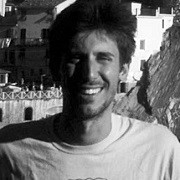 Federico Battiston is an Associate Professor at the Department of Network and Data Science at Central European University. Before joining DNDS-CEU, he held postdoctoral positions at University College London, and at the Brain & Spine Institute in Paris. Federico holds a PhD in Applied Mathematics from Queen Mary University of London, and degrees in Theoretical Physics from Sapienza University of Rome. He works on the structure and dynamics of complex networks.
Federico Battiston is an Associate Professor at the Department of Network and Data Science at Central European University. Before joining DNDS-CEU, he held postdoctoral positions at University College London, and at the Brain & Spine Institute in Paris. Federico holds a PhD in Applied Mathematics from Queen Mary University of London, and degrees in Theoretical Physics from Sapienza University of Rome. He works on the structure and dynamics of complex networks.
Personal page
Dario Bercioux, PhD, Donostia International Physics Center (DIPC), Spain
orcid.org/0000-0003-4890-5776
Research areas: spintronics, graphene & carbon nanotubes, topological matter, pseudo-spin-one systems, excitonic insulators, mesoscopic superconductivity, electron and photon simulators
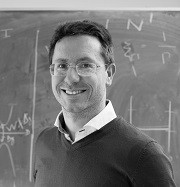 Dr Dario Bercioux is a theoretical condensed matter physicist at the Donostia International Physics Center (DIPC) in Spain. After obtaining his PhD in physics from the "Federico II" University of Naples, Italy in 2005, Dario worked as a postdoctoral fellow in Germany at the University of Regensburg, the Freiburg Institute for Advanced Studies (FRIAS) and the Freie University (FU) Berlin. He joined the Ikerbasque Foundation in Spain in 2014, first as a Research Fellow and since Fall 2019 as an Ikerbasque Associate Research Professor. His research interests include spintronics, carbon-based materials, topological matter, pseudo-spin-one systems, excitonic insulators, mesoscopic superconductivity, and electron/photon quantum simulators.
Dr Dario Bercioux is a theoretical condensed matter physicist at the Donostia International Physics Center (DIPC) in Spain. After obtaining his PhD in physics from the "Federico II" University of Naples, Italy in 2005, Dario worked as a postdoctoral fellow in Germany at the University of Regensburg, the Freiburg Institute for Advanced Studies (FRIAS) and the Freie University (FU) Berlin. He joined the Ikerbasque Foundation in Spain in 2014, first as a Research Fellow and since Fall 2019 as an Ikerbasque Associate Research Professor. His research interests include spintronics, carbon-based materials, topological matter, pseudo-spin-one systems, excitonic insulators, mesoscopic superconductivity, and electron/photon quantum simulators.
Personal page
Tracey Berry, PhD, University of London, United Kingdom
orcid.org/0000-0002-9569-8231
Research areas: Particle Physics
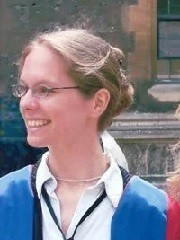 Dr Tracey Berry is an experimental particle physicist. She leads a group to search for new (exotic) particles using the ATLAS detector on the Large Hadron Collider (LHC) at CERN, which is the highest energy collider in the world. Previously, before the LHC turned on, she researched as postdoctoral research fellow on the Collider Detector at Fermilab, on the Tevatron near Chicago, which was then the world's highest energy collider. She completed her undergraduate degree (being made a scholar after her first year and obtaining a first class) and DPhil at St Edmund Hall, University of Oxford. As well as a passion for maths and physics she is a keen sportswoman. Having played University (Blues) netball for many years, rowed and during her DPhil started running. She is still a keen long-distance (marathon) runner. Presently she is based at Royal Holloway, University of London and is the Director of External Engagement for the School of Science.
Dr Tracey Berry is an experimental particle physicist. She leads a group to search for new (exotic) particles using the ATLAS detector on the Large Hadron Collider (LHC) at CERN, which is the highest energy collider in the world. Previously, before the LHC turned on, she researched as postdoctoral research fellow on the Collider Detector at Fermilab, on the Tevatron near Chicago, which was then the world's highest energy collider. She completed her undergraduate degree (being made a scholar after her first year and obtaining a first class) and DPhil at St Edmund Hall, University of Oxford. As well as a passion for maths and physics she is a keen sportswoman. Having played University (Blues) netball for many years, rowed and during her DPhil started running. She is still a keen long-distance (marathon) runner. Presently she is based at Royal Holloway, University of London and is the Director of External Engagement for the School of Science.
Personal webpage.
Christian Bick, Phd, Vrije Universiteit Amsterdam, Netherlands
orcid.org/0000-0002-5238-1146
Research areas: dynamical systems and applications, networks, neuroscience
 Christian Bick received his Diploma in mathematics from Georg-August-Universität Göttingen (Germany). After a year at the University of California, San Diego (USA), he completed his PhD work at the Max-Planck Institute for Dynamics and Self-Organization in Göttingen to obtain his doctorate in mathematics from Georg-August-Universität Göttingen. After a postdoctoral appointment at Rice University (USA), he came to the University of Exeter (UK) as a Marie Curie Fellow (IEF). He held faculty positions at the Mathematical Institute of the University of Oxford, the University of Exeter, and now the Vrije Universiteit Amsterdam.
Christian Bick received his Diploma in mathematics from Georg-August-Universität Göttingen (Germany). After a year at the University of California, San Diego (USA), he completed his PhD work at the Max-Planck Institute for Dynamics and Self-Organization in Göttingen to obtain his doctorate in mathematics from Georg-August-Universität Göttingen. After a postdoctoral appointment at Rice University (USA), he came to the University of Exeter (UK) as a Marie Curie Fellow (IEF). He held faculty positions at the Mathematical Institute of the University of Oxford, the University of Exeter, and now the Vrije Universiteit Amsterdam.
Personal page
Marin Bukov, PhD, Max Planck Institute for the Physics of Complex Systems, Dresden, Germany
orcid.org/0000-0002-3688-9599
Research areas: nonequilibrium quantum dynamics, quantum simulators, applications of machine learning in physics
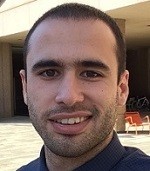 Marin Bukov is a research group leader at the Max Planck Institute for the Physics of Complex Systems in Dresden. He studied at the Ludwig-Maximilians-Universität and the Technische Universität in Munich, and obtained his PhD from Boston University. Prior to joining the Max Planck Society, he was a Gordon and Betty Moore postdoctoral fellow at the Condensed Matter Theory Center at UC Berkeley, and a junior group leader at Sofia University. His research is focused on the theory of out-of-equilibrium quantum many-body systems with applications to quantum simulators, and the interplay between machine learning and many-body physics.
Marin Bukov is a research group leader at the Max Planck Institute for the Physics of Complex Systems in Dresden. He studied at the Ludwig-Maximilians-Universität and the Technische Universität in Munich, and obtained his PhD from Boston University. Prior to joining the Max Planck Society, he was a Gordon and Betty Moore postdoctoral fellow at the Condensed Matter Theory Center at UC Berkeley, and a junior group leader at Sofia University. His research is focused on the theory of out-of-equilibrium quantum many-body systems with applications to quantum simulators, and the interplay between machine learning and many-body physics.
Lab page; Personal Page
Roberto Di Candia, PhD, Aalto University, Finland
orcid.org/0000-0001-9087-2125
Research areas: Quantum optics, Microwave quantum information processing, Quantum sensing, Quantum communication, Continuous-variable quantum information
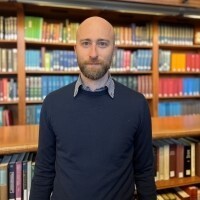 Roberto Di Candia is an Academy of Finland Research Fellow at Aalto University (Finland). Previously, he held postdoctoral positions as a Humboldt Fellow at Freie University of Berlin and as a Marie Curie Fellow at Aalto University. Roberto is an expert in continuous-variable quantum information and works at the intersection of theoretical quantum information, experimental microwave quantum technology, and microwave communication engineering.
Roberto Di Candia is an Academy of Finland Research Fellow at Aalto University (Finland). Previously, he held postdoctoral positions as a Humboldt Fellow at Freie University of Berlin and as a Marie Curie Fellow at Aalto University. Roberto is an expert in continuous-variable quantum information and works at the intersection of theoretical quantum information, experimental microwave quantum technology, and microwave communication engineering.
Personal page
Mithun Chowdhury, Phd, Indian Institute of Technology Bombay, Maharashtra, India
orcid.org/ 0000-0002-2513-6006
Research areas: Nonequilibrium phenomena in soft condensed matter in complex spaces (pore, confinement etc.), with particular emphasis on the physics of polymers, droplets, and colloids. Principles from glass transition, relaxation, fluid dynamics, rheology, and interfacial properties.
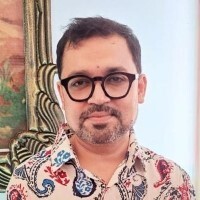 Mithun Chowdhury is currently serving as an Associate Professor at IIT Bombay, India. Prior to this, he held the position of Associate Postdoctoral Research Scholar at the Department of Chemical & Biological Engineering, Princeton University. He earned his Ph.D. in Physics from the University of Freiburg, Germany, and subsequently completed postdoctoral research at Trinity College Dublin, Ireland, and the University of St. Andrews, UK.
Mithun Chowdhury is currently serving as an Associate Professor at IIT Bombay, India. Prior to this, he held the position of Associate Postdoctoral Research Scholar at the Department of Chemical & Biological Engineering, Princeton University. He earned his Ph.D. in Physics from the University of Freiburg, Germany, and subsequently completed postdoctoral research at Trinity College Dublin, Ireland, and the University of St. Andrews, UK.
Personal page
Amin Doostmohammadi, Phd, University of Copenhagen, Denmark
orcid.org/0000-0002-1116-4268
Research areas: active matter, cell mechanics, complex fluids
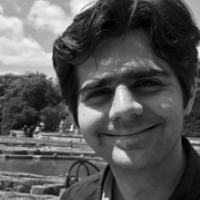 Amin Doostmohammadi is a Novo-Nordisk Assistant Professor at the Niels Bohr International Academy. He also has a cross-appointment as a Specially Appointed Assistant Professor at the Department of Bioengineering in Osaka University, Japan. Before joining NBI, Amin held a Royal 1851 Research Fellowship at Oxford University's Rudolph Peierls Centre for Theoretical Physics and has recently been awarded DFF-ERC and Villum Young Investigator Awards.
Amin Doostmohammadi is a Novo-Nordisk Assistant Professor at the Niels Bohr International Academy. He also has a cross-appointment as a Specially Appointed Assistant Professor at the Department of Bioengineering in Osaka University, Japan. Before joining NBI, Amin held a Royal 1851 Research Fellowship at Oxford University's Rudolph Peierls Centre for Theoretical Physics and has recently been awarded DFF-ERC and Villum Young Investigator Awards.
Personal page
James A Grieve, PhD, Technology Innovation Institute, United Arab Emirates
orcid.org/0000-0002-2800-8317
Research areas: Quantum Optics, Integrated Photonics, Nonlinear Optics, Single Photons, Entanglement Distribution, Quantum Key Distribution
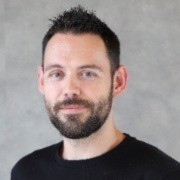 James A Grieve is a principal investigator at the Quantum Research Centre, Technology Innovation Institute, Abu Dhabi. His research centres around the practical implementation of quantum communications technologies, including both fibre-based and satellite quantum key distribution. He obtained his PhD from the University of Bristol in 2012.
James A Grieve is a principal investigator at the Quantum Research Centre, Technology Innovation Institute, Abu Dhabi. His research centres around the practical implementation of quantum communications technologies, including both fibre-based and satellite quantum key distribution. He obtained his PhD from the University of Bristol in 2012.
Personal webpage.
Sergi Garcia-Manyes, PhD, King’s College London, United Kingdom
orcid.org/0000-0001-5140-2606
Research areas: mechanobiology, single molecules, molecular mechanisms, single proteins, protein mechanochemistry
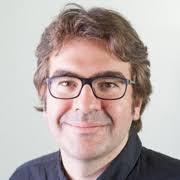 Dr Sergi Garcia-Manyes is Professor of Biophysics at King’s College London, holding a joint appointment between the Randall Centre for Cell and Molecular Biophysics and the Department of Physics, where he is the Head of the Biological Physics and Soft Matter (BPSM) research group. He has also established a satellite laboratory at the Francis Crick Institute (London). Sergi obtained his PhD in Physical Chemistry from the University of Barcelona, and conducted his postdoctoral training in the field of single molecule mechanics in the Biology Department of Columbia University in the City of New York. Sergi’s lab is interested in mechanobiology across different length-scales, spanning from single molecules to individual cells, with a particular accent on the molecular mechanisms underpinning mechanical folding of single proteins and protein mechanochemistry at the single bond level. Sergi held an EPSRC Early Career Fellowship, and has been recently awarded the Leverhulme Research Leadership Award and a Wellcome Trust Investigator Award.
Dr Sergi Garcia-Manyes is Professor of Biophysics at King’s College London, holding a joint appointment between the Randall Centre for Cell and Molecular Biophysics and the Department of Physics, where he is the Head of the Biological Physics and Soft Matter (BPSM) research group. He has also established a satellite laboratory at the Francis Crick Institute (London). Sergi obtained his PhD in Physical Chemistry from the University of Barcelona, and conducted his postdoctoral training in the field of single molecule mechanics in the Biology Department of Columbia University in the City of New York. Sergi’s lab is interested in mechanobiology across different length-scales, spanning from single molecules to individual cells, with a particular accent on the molecular mechanisms underpinning mechanical folding of single proteins and protein mechanochemistry at the single bond level. Sergi held an EPSRC Early Career Fellowship, and has been recently awarded the Leverhulme Research Leadership Award and a Wellcome Trust Investigator Award.
Personal page
Lucas Hackl, PhD, University of Melbourne, Australia
orcid.org/0000-0002-4172-0317
Research areas: Quantum Information Theory, Bipartite Entanglement Entropy, Variational Methods, Circuit Complexity, Gaussian States, Continuous Variable Quantum Information, Quantum Field Theory in Curved Spacetime
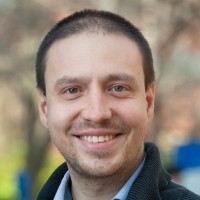 Lucas Hackl is a Lecturer in Mathematical Physics in the School of Mathematics and Statistics at the University of Melbourne. Previously, he held postdoctoral positions at the Max Planck Harvard Research Center for Quantum Optics and the Villum Centre for the Mathematics of Quantum Theory at the University of Copenhagen. He completed his PhD at the Institute for Gravitation and the Cosmos at the Pennsylvania State University. Awards include an Discovery Early Career Researcher Award by the Australian Research Council, a Feodor Lynen Research Fellowship by the German Alexander von Humboldt Foundation and a Penn State Alumni Association Dissertation Award. His research interests lie at the intersection of quantum information, geometry and fundamental theory, which includes typical eigenstate entanglement, variational methods for many body quantum systems, the mathematics of bosonic and fermionic Gaussian states and group theoretic coherent states, quantum field theory in curved spacetime and circuit complexity in high energy theory.
Lucas Hackl is a Lecturer in Mathematical Physics in the School of Mathematics and Statistics at the University of Melbourne. Previously, he held postdoctoral positions at the Max Planck Harvard Research Center for Quantum Optics and the Villum Centre for the Mathematics of Quantum Theory at the University of Copenhagen. He completed his PhD at the Institute for Gravitation and the Cosmos at the Pennsylvania State University. Awards include an Discovery Early Career Researcher Award by the Australian Research Council, a Feodor Lynen Research Fellowship by the German Alexander von Humboldt Foundation and a Penn State Alumni Association Dissertation Award. His research interests lie at the intersection of quantum information, geometry and fundamental theory, which includes typical eigenstate entanglement, variational methods for many body quantum systems, the mathematics of bosonic and fermionic Gaussian states and group theoretic coherent states, quantum field theory in curved spacetime and circuit complexity in high energy theory.
Personal page
Felix Höfling, PhD, Freie Universität Berlin, Germany
orcid.org/0000-0002-9609-7155
Research areas: soft and active matter, non-equilibrium statistical mechanics, slow relaxation, diffusion processes, molecular simulation
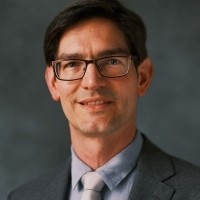 Dr Felix Höfling is a Professor at the Institute of Mathematics at Freie Universität Berlin, Germany. His research focuses on dynamic phenomena that emerge in complex fluids and soft matter, typically covering many scales in length and time. He is passionate about high-precision computer simulations using cutting-edge technology, which he combines with mathematical analyses of stochastic particle models. Felix studied physics at the University of Heidelberg. In 2006, he received his PhD with distinction from the Ludwig-Maximilians-Universität in Munich. After postdocs in Munich and Oxford, he worked at the Max Planck Institute for Intelligent Systems in Stuttgart as a research associate before he was appointed at Freie Universität in 2015. Currently, he is also acting as a Node Director of the CECAM network (Centre Européen de Calcul Atomique et Moléculaire).
Dr Felix Höfling is a Professor at the Institute of Mathematics at Freie Universität Berlin, Germany. His research focuses on dynamic phenomena that emerge in complex fluids and soft matter, typically covering many scales in length and time. He is passionate about high-precision computer simulations using cutting-edge technology, which he combines with mathematical analyses of stochastic particle models. Felix studied physics at the University of Heidelberg. In 2006, he received his PhD with distinction from the Ludwig-Maximilians-Universität in Munich. After postdocs in Munich and Oxford, he worked at the Max Planck Institute for Intelligent Systems in Stuttgart as a research associate before he was appointed at Freie Universität in 2015. Currently, he is also acting as a Node Director of the CECAM network (Centre Européen de Calcul Atomique et Moléculaire).
Personal page
Olga Kuksenok, PhD, Clemson University, United States
orcid.org/0000-0002-1895-5206
Research areas: computational polymer physics, elastodynamics of polymer networks, chemoresponsive and self-oscillating gels, degradation of polymer networks, pattern formation in polymeric systems, biomimetic materials
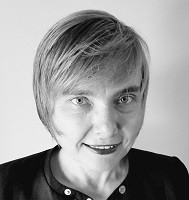 Dr. Kuksenok is currently an Associate Professor at the Materials Science and Engineering Department at Clemson University in Clemson, SC. Prior to joining Clemson University in 2015, she held a Research Associate Professor appointment at the Chemical Engineering Department at the University of Pittsburgh in Pittsburgh, PA. Dr. Kuksenok received her PhD in Physics and Mathematics from the Institute of Physics, National Academy of Sciences of Ukraine, and was appointed as a research scientist in the Theoretical Physics Department, Institute for Nuclear Research in Kiev, Ukraine, and then as a postdoctoral research associate at the University of Pittsburgh. Dr. Kuksenok’s current research interests and accomplishments span several areas of computational materials science: responsive polymer networks, dynamics of multi-component polymer blends, biomimetic and biological materials, soft and active matter, pattern formation in non-equilibrium systems.
Dr. Kuksenok is currently an Associate Professor at the Materials Science and Engineering Department at Clemson University in Clemson, SC. Prior to joining Clemson University in 2015, she held a Research Associate Professor appointment at the Chemical Engineering Department at the University of Pittsburgh in Pittsburgh, PA. Dr. Kuksenok received her PhD in Physics and Mathematics from the Institute of Physics, National Academy of Sciences of Ukraine, and was appointed as a research scientist in the Theoretical Physics Department, Institute for Nuclear Research in Kiev, Ukraine, and then as a postdoctoral research associate at the University of Pittsburgh. Dr. Kuksenok’s current research interests and accomplishments span several areas of computational materials science: responsive polymer networks, dynamics of multi-component polymer blends, biomimetic and biological materials, soft and active matter, pattern formation in non-equilibrium systems.
Personal page
Ching Hua Lee, PhD, National University of Singapore, Singapore
orcid.org/0000-0003-0690-3238
Research areas: Non-Hermitian phenomena and metamaterials, Floquet engineering, Topological classification, Quantum computer simulations of condensed matter
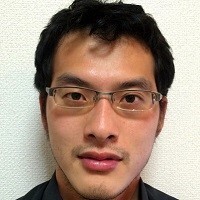 Ching Hua Lee is an Assistant Professor at the National University of Singapore. He obtained his PhD in theoretical condensed matter physics from Stanford University in 2015, and has since then worked on a variety of topics ranging from fractional quantum Hall to Topolectrical circuits and metamaterials. His current research focuses on discovering new phenomena in non-Hermitian systems, as well as their realization in NISQ-era quantum devices. He has authored over 110 publications, and is the recipient of the 2023 Nanotechnology Physics Medal and Prize awarded by the Institute of Physics of Singapore (IPS).
Ching Hua Lee is an Assistant Professor at the National University of Singapore. He obtained his PhD in theoretical condensed matter physics from Stanford University in 2015, and has since then worked on a variety of topics ranging from fractional quantum Hall to Topolectrical circuits and metamaterials. His current research focuses on discovering new phenomena in non-Hermitian systems, as well as their realization in NISQ-era quantum devices. He has authored over 110 publications, and is the recipient of the 2023 Nanotechnology Physics Medal and Prize awarded by the Institute of Physics of Singapore (IPS).
Personal page
Daniele Margarone, Phd, Queen's University Belfast, United Kingdom & ELI Beamlines, Czech Republic
Research areas: laser-plasma interaction, laser-driven acceleration, laser-induced nuclear fusion, novel approaches to hadrontherapy, radiation detectors
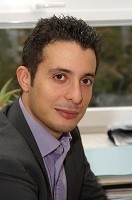
Personal page
Dennis Meier, PhD, Norwegian University of Science and Technology (NTNU), Trondheim, Norway
orcid.org/0000-0002-8623-6705
Research areas: emergent electric and magnetic nanoscale phenomena in correlated electron materials
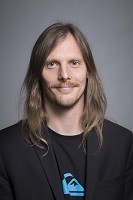 Dr. Dennis Meier is Professor at the Norwegian University of Science and Technology (NTNU) in Trondheim, Norway. He studied physics and received his Diploma at the University of Cologne, Germany. After obtaining his PhD degree from the University of Bonn, he worked as Feodor-Lynen Research Fellow at the University of California, Berkeley, USA. In 2013, he joined the ETH Zurich in Switzerland and established a new Junior Research Group. In 2016, he was appointed as Onsager Fellow and Associate Professor at the Department of Materials Science and Engineering at NTNU, where he became full Professor in 2019. In addition, he is associated member of QuSpin, a Centre of Excellence for Quantum Spintronics at the Department of Physics at NTNU. His research studies emergent electric and magnetic nanoscale phenomena in correlated electron materials with a focus on functional topological systems. Recent honors include awards from the German Physical Society (Gustav-Hertz Award), the Norwegian Academy of Science (Fridtjof Nansen award for young scientists), the Royal Norwegian Society of Sciences and Letters (I. K. Lykkes award) and an ERC Consolidator Grant from the European Research Council.
Dr. Dennis Meier is Professor at the Norwegian University of Science and Technology (NTNU) in Trondheim, Norway. He studied physics and received his Diploma at the University of Cologne, Germany. After obtaining his PhD degree from the University of Bonn, he worked as Feodor-Lynen Research Fellow at the University of California, Berkeley, USA. In 2013, he joined the ETH Zurich in Switzerland and established a new Junior Research Group. In 2016, he was appointed as Onsager Fellow and Associate Professor at the Department of Materials Science and Engineering at NTNU, where he became full Professor in 2019. In addition, he is associated member of QuSpin, a Centre of Excellence for Quantum Spintronics at the Department of Physics at NTNU. His research studies emergent electric and magnetic nanoscale phenomena in correlated electron materials with a focus on functional topological systems. Recent honors include awards from the German Physical Society (Gustav-Hertz Award), the Norwegian Academy of Science (Fridtjof Nansen award for young scientists), the Royal Norwegian Society of Sciences and Letters (I. K. Lykkes award) and an ERC Consolidator Grant from the European Research Council.
Personal page
Hu Miao, PhD, Oak Ridge National Laboratory, Tennessee, United States
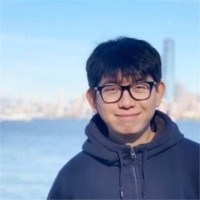 orcid.org/0000-0003-1078-5713
orcid.org/0000-0003-1078-5713
Research areas: Superconductivity, Strongly Correlated Electron Systems, Topological States
Hu Miao a staff scientist at the Oak Ridge National Laboratory. He received his PhD from the Institute of Physics, Chinese Academy of Science in 2015. He then joined the Brookhaven National Laboratory as a postdoctoral research associate until he moved to Oak Ridge in 2019. Hu Miao is a photon- and electron-spectroscopist working in the field of correlated and topological materials.
Personal page
Saskia Mordijck, PhD, College of William and Mary, United States
Research areas: plasma physics, fusion energy, turbulence, chaos, data science
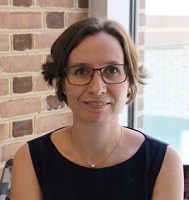 Saskia Mordijck received her Ph.D. in Engineering Physics from the University of California San Diego (UCSD) in 2011 and she received a Master degree from the K.U. Leuven (Belgium) in 2006. Her research focuses on plasma transport & turbulence using both experiments and modeling in magnetized plasmas. She is passionate about fusion and energy in general and curious in applying new mathematical and computational techniques to study turbulence and chaos in general. Currently, she is an assistant professor in physics at The College of William and Mary.
Saskia Mordijck received her Ph.D. in Engineering Physics from the University of California San Diego (UCSD) in 2011 and she received a Master degree from the K.U. Leuven (Belgium) in 2006. Her research focuses on plasma transport & turbulence using both experiments and modeling in magnetized plasmas. She is passionate about fusion and energy in general and curious in applying new mathematical and computational techniques to study turbulence and chaos in general. Currently, she is an assistant professor in physics at The College of William and Mary.
Personal page
Martin Oberlack, PhD, Technical University of Darmstadt, Germany
orcid.org/0000-0002-5849-3755
Research areas: theoretical and numerical fluid mechanics, such as turbulence, hydrodynamic stability theory, multi-phase flows, high-order numerical methods or high-performance computing
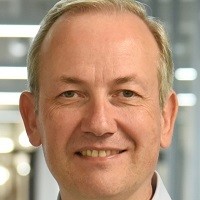 Martin Oberlack received both his Diploma in Aeronautics (1988) and his Ph.D. in ME in (1994) from RWTH Aachen. He then became a PostDoc at the Center for Turbulence Research at Stanford University / NASA Ames until 1997, when he returned to RWTH Aachen University and completed his habilitation there in 2000. He is presently full Professor in the Department of Mechanical Engineering at the Technical University of Darmstadt and holder of the chair for fluid dynamics. His scientific focus is on statistical turbulence theory and the application of group-theoretical methods as well as large turbulence simulations. Furthermore, he explores singular flow problems with analytical methods as well as with new high-precision numerical methods, especially in the application to multi-phase problems. His research interests cover the broader field of theoretical and numerical fluid mechanics, such as turbulence, hydrodynamic stability theory, multi-phase flows, high-order numerical methods or high-performance computing. In the early stages of his career, he received the Friedrich-Wilhelm Award of the RWTH Aachen, the Hermann-Reissner-Award of the University of Stuttgart and the Academy Award 2000 of the North Rhine-Westphalia Academy of Sciences. He is a Fellow of the American Physical Society.
Martin Oberlack received both his Diploma in Aeronautics (1988) and his Ph.D. in ME in (1994) from RWTH Aachen. He then became a PostDoc at the Center for Turbulence Research at Stanford University / NASA Ames until 1997, when he returned to RWTH Aachen University and completed his habilitation there in 2000. He is presently full Professor in the Department of Mechanical Engineering at the Technical University of Darmstadt and holder of the chair for fluid dynamics. His scientific focus is on statistical turbulence theory and the application of group-theoretical methods as well as large turbulence simulations. Furthermore, he explores singular flow problems with analytical methods as well as with new high-precision numerical methods, especially in the application to multi-phase problems. His research interests cover the broader field of theoretical and numerical fluid mechanics, such as turbulence, hydrodynamic stability theory, multi-phase flows, high-order numerical methods or high-performance computing. In the early stages of his career, he received the Friedrich-Wilhelm Award of the RWTH Aachen, the Hermann-Reissner-Award of the University of Stuttgart and the Academy Award 2000 of the North Rhine-Westphalia Academy of Sciences. He is a Fellow of the American Physical Society.
Personal page
Alicia Palacios, PhD, Universidad Autónoma de Madrid, Spain
orcid.org/0000-0001-6531-9926
Research areas: Attosecond science; Atomic and Molecular Physics; Time-dependent ab initio methods; Molecular photoionization; Atomic double ionization; Attochemistry.
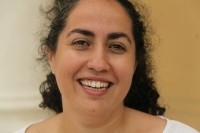 Alicia Palacios received her PhD Degree in 2006 at Universidad Autónoma de Madrid, Spain. She completed her education with several stays in the Université Bordeaux I, and a long-term Postdoctoral fellowship (2006−2009) at the Lawrence Berkeley National Lab, Berkeley, CA. She is currently an Associate Professor at the Universidad Autónoma de Madrid. She received the Marie Curie Integration Grant (ATTOTREND) as a Fellow Researcher (2014). She has been Principal Investigator in several National projects since 2016 to date, and Computational projects, as well as participant in International Networks (COST Actions). She has published more than 85 peer reviewed articles in international journals and given more than 40 Invited talks in international conferences in the field of atomic and molecular physics. Specifically, she is an expert on developing new ab initio time-dependent treatments for the description of atoms and molecules subject to ultrashort intense laser pulses. Mildred Dresselhaus Junior Award (2018) by the University of Hamburg. She is currently the coordinator of the Master on Theoretical Chemistry and Computational Modeling in Spain; and Chair of the Atomic, Molecular and Optical Physics Division at the European Physical Society.
Alicia Palacios received her PhD Degree in 2006 at Universidad Autónoma de Madrid, Spain. She completed her education with several stays in the Université Bordeaux I, and a long-term Postdoctoral fellowship (2006−2009) at the Lawrence Berkeley National Lab, Berkeley, CA. She is currently an Associate Professor at the Universidad Autónoma de Madrid. She received the Marie Curie Integration Grant (ATTOTREND) as a Fellow Researcher (2014). She has been Principal Investigator in several National projects since 2016 to date, and Computational projects, as well as participant in International Networks (COST Actions). She has published more than 85 peer reviewed articles in international journals and given more than 40 Invited talks in international conferences in the field of atomic and molecular physics. Specifically, she is an expert on developing new ab initio time-dependent treatments for the description of atoms and molecules subject to ultrashort intense laser pulses. Mildred Dresselhaus Junior Award (2018) by the University of Hamburg. She is currently the coordinator of the Master on Theoretical Chemistry and Computational Modeling in Spain; and Chair of the Atomic, Molecular and Optical Physics Division at the European Physical Society.
Personal page
Fabio Pezzoli, PhD, University of Milano-Bicocca, Italy
orcid.org/0000-0001-8570-7299
Research areas: Electronic and optical properties of group IV heterostructures, Semiconductor spintronics
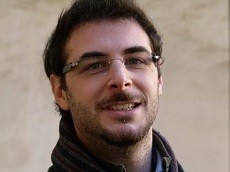 Dr Fabio Pezzoli received his PhD in Nanostructures and Nanotechnologies from the University of Milano-Bicocca. He had been visiting student at the Johannes Kepler University of Linz and conducted postdoctoral work at the Max-Planck-Institut für Festkörperforschung in Stuttgart and at the Leibniz-Institut für Festkörper- und Werkstoffforschung Dresden. He has investigated epitaxy and fundamental properties of semiconductor architectures exploring application possibilities in various fields including microelectronics and thermoelectrics. He was recipient of a young physicist award by the Italian Physical Society. Since 2019 he has been Associate Professor at the Department of Materials Science of the University of Milano-Bicocca where he leads investigations on spin-dependent phenomena in group IV materials. He is also affiliated to the L-NESS centre of Como (Italy).
Dr Fabio Pezzoli received his PhD in Nanostructures and Nanotechnologies from the University of Milano-Bicocca. He had been visiting student at the Johannes Kepler University of Linz and conducted postdoctoral work at the Max-Planck-Institut für Festkörperforschung in Stuttgart and at the Leibniz-Institut für Festkörper- und Werkstoffforschung Dresden. He has investigated epitaxy and fundamental properties of semiconductor architectures exploring application possibilities in various fields including microelectronics and thermoelectrics. He was recipient of a young physicist award by the Italian Physical Society. Since 2019 he has been Associate Professor at the Department of Materials Science of the University of Milano-Bicocca where he leads investigations on spin-dependent phenomena in group IV materials. He is also affiliated to the L-NESS centre of Como (Italy).
Personal page
Nick Proukakis, PhD, Newcastle University, United Kingdom
orcid.org/0000-0003-0126-5820
Research areas: ultracold quantum matter, Bose-Einstein condensation and superfluidity, atomtronics, non-equilibrium quantum dynamics, phase transitions and universality, superfluid turbulence, exciton-polariton condensation, multi-component quantum matter, nonlinear excitations
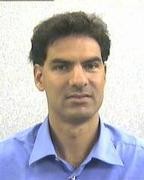 Nick Proukakis is Professor of Quantum Physics and Director of the Physics Degree Programme at Newcastle University, and Co-Director of the Joint Quantum Centre (JQC) Durham-Newcastle. With a Physics degree from Imperial College London, a Doctorate from Oxford University, and researcher posts in Greece, Germany, UK and Netherlands, Nick is an advocate for scientific mobility and collaborative research, having held visiting academic posts/professorships across Australia, Austria, Belgium, Canada, Germany, Italy and Taiwan and maintaining established networks of international collaborators across five continents. His primary research expertise lies in ultracold quantum matter and Bose-Einstein condensation, addressing both fundamental and universal aspects through analytical/numerical modelling, with an active interest in modelling of, and applications to experiments and potential emerging quantum technologies; however, his research interests cut across broader themes of quantum gases and fluids, most notably including exciton-polariton condensation and superfluid turbulence. He is the lead editor of two research volumes cutting across different physics disciplines, respectively addressing finite temperature and non-equilibrium dynamics in quantum gases, and universal themes of Bose-Einstein condensation.
Nick Proukakis is Professor of Quantum Physics and Director of the Physics Degree Programme at Newcastle University, and Co-Director of the Joint Quantum Centre (JQC) Durham-Newcastle. With a Physics degree from Imperial College London, a Doctorate from Oxford University, and researcher posts in Greece, Germany, UK and Netherlands, Nick is an advocate for scientific mobility and collaborative research, having held visiting academic posts/professorships across Australia, Austria, Belgium, Canada, Germany, Italy and Taiwan and maintaining established networks of international collaborators across five continents. His primary research expertise lies in ultracold quantum matter and Bose-Einstein condensation, addressing both fundamental and universal aspects through analytical/numerical modelling, with an active interest in modelling of, and applications to experiments and potential emerging quantum technologies; however, his research interests cut across broader themes of quantum gases and fluids, most notably including exciton-polariton condensation and superfluid turbulence. He is the lead editor of two research volumes cutting across different physics disciplines, respectively addressing finite temperature and non-equilibrium dynamics in quantum gases, and universal themes of Bose-Einstein condensation.
Personal page
Bivas Rana, PhD, Adam Mickiewicz University, Poland
orcid.org/0000-0002-1076-4165
Research areas: Magnonics, spintronics, magnonic crystals, ferromagnetic resonance, interfacial spin-orbit coupling, voltage-controlled magnetic anisotropy, magnetic damping, magnetic skyrmions, ultrafast spin dynamics, magnon-phonon coupling
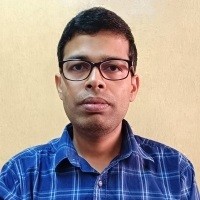 Bivas Rana received his Ph.D. in experimental physics in 2014 from University of Calcutta, India under the supervision of Prof. Anjan Barman. Then he moved to RIKEN, Japan to pursue his Postdoctoral research with Prof. YoshiChika Otani. Currently, he is working as an Assistant Professor in the Institute of Spintronics and Quantum Information (ISQI), Faculty of Physics, Adam Mickiewicz University, Poznań, Poland since February 2021. His current research interests is the investigation and manipulation (e.g. by electric field) of various types of physical phenomena such as perpendicular magnetic anisotropy, magnetic damping, Dzyaloshinskii-Moriya interaction originated at the interfaces of magnetic thin film heterostructures through spin-orbit coupling. The purpose is to utilize these interfacial phenomena for the efficient excitation and manipulation of spin waves; controlling magnetic skyrmions and ultrafast spin dynamics; and optimizing coupling efficiency between magnons with other quasiparticles such as acoustic phonons, spin-polarized electrons with an ultimate goal to develop energy efficient miniaturized microwave devices for future technology. He received Habilitation in Physical Sciences in 2023 awarded by Adam Mickiewicz University, Poland.
Bivas Rana received his Ph.D. in experimental physics in 2014 from University of Calcutta, India under the supervision of Prof. Anjan Barman. Then he moved to RIKEN, Japan to pursue his Postdoctoral research with Prof. YoshiChika Otani. Currently, he is working as an Assistant Professor in the Institute of Spintronics and Quantum Information (ISQI), Faculty of Physics, Adam Mickiewicz University, Poznań, Poland since February 2021. His current research interests is the investigation and manipulation (e.g. by electric field) of various types of physical phenomena such as perpendicular magnetic anisotropy, magnetic damping, Dzyaloshinskii-Moriya interaction originated at the interfaces of magnetic thin film heterostructures through spin-orbit coupling. The purpose is to utilize these interfacial phenomena for the efficient excitation and manipulation of spin waves; controlling magnetic skyrmions and ultrafast spin dynamics; and optimizing coupling efficiency between magnons with other quasiparticles such as acoustic phonons, spin-polarized electrons with an ultimate goal to develop energy efficient miniaturized microwave devices for future technology. He received Habilitation in Physical Sciences in 2023 awarded by Adam Mickiewicz University, Poland.
Personal page
Markus Raschke, PhD, University of Colorado, United States
orcid.org/0000-0003-2822-851X
Research areas: nano-optics, ultrafast spectroscopy, quantum materials, molecular physics, mineral physics
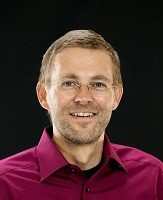 Markus Raschke is professor at the Department of Physics and JILA at the University of Colorado at Boulder. His research is on the development and application of nano-scale nonlinear and ultrafast spectroscopy to control the light-matter interaction on the nanoscale. These techniques allow for imaging structure and dynamics of molecular and quantum matter with nanometer spatial resolution. He received his PhD in 2000 from the Max-Planck Institute of Quantum Optics and the Technical University in Munich, Germany. Following research appointments at the University of California at Berkeley, and the Max-Born-Institute in Berlin, he became faculty member at the University of Washington in 2006, before moving to Boulder in 2010. He is fellow of the Optical Society of America, the American Physical Society, he American Association for the Advancement of Science, and the Explorers Club.
Markus Raschke is professor at the Department of Physics and JILA at the University of Colorado at Boulder. His research is on the development and application of nano-scale nonlinear and ultrafast spectroscopy to control the light-matter interaction on the nanoscale. These techniques allow for imaging structure and dynamics of molecular and quantum matter with nanometer spatial resolution. He received his PhD in 2000 from the Max-Planck Institute of Quantum Optics and the Technical University in Munich, Germany. Following research appointments at the University of California at Berkeley, and the Max-Born-Institute in Berlin, he became faculty member at the University of Washington in 2006, before moving to Boulder in 2010. He is fellow of the Optical Society of America, the American Physical Society, he American Association for the Advancement of Science, and the Explorers Club.
Personal page
Grigory Rogachev, PhD, Texas A&M University, United States
orcid.org/0000-0003-1120-6103
Research areas: nuclear physics, nuclear astrophysics.
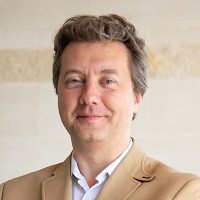 Grigory Rogachev is doing research in low energy experimental nuclear physics and nuclear astrophysics, focusing on structure of light and medium mass nuclei, in particular exotic neutron-rich and neutron-deficient isotopes, clustering phenomena in nuclei, and also on determining rates of key nuclear reactions that drive nucleosynthesis and energy generation in stellar environment. Grigory Rogachev graduated from Moscow Engineering Physics Institute (State University) in 1996 with Master of Science degree in Experimental Nuclear Physics. From 1996 to 1999 Grigory Rogachev was a Research Assistant at the National Research Center "Kurchatov Institute" where he received his Ph.D. degree in 1999. From 2000 to 2003 he was a Postdoctoral Research Associate and later (2003-2004) a Research Assistant Professor at the University of Notre Dame. In summer of 2004 Grigory Rogachev joined faculty at the Department of Physics at Florida State. In summer of 2013 he moved to Texas A&M University. At present he is a Professor and Head of the Department of Physics & Astronomy at Texas A&M University.
Grigory Rogachev is doing research in low energy experimental nuclear physics and nuclear astrophysics, focusing on structure of light and medium mass nuclei, in particular exotic neutron-rich and neutron-deficient isotopes, clustering phenomena in nuclei, and also on determining rates of key nuclear reactions that drive nucleosynthesis and energy generation in stellar environment. Grigory Rogachev graduated from Moscow Engineering Physics Institute (State University) in 1996 with Master of Science degree in Experimental Nuclear Physics. From 1996 to 1999 Grigory Rogachev was a Research Assistant at the National Research Center "Kurchatov Institute" where he received his Ph.D. degree in 1999. From 2000 to 2003 he was a Postdoctoral Research Associate and later (2003-2004) a Research Assistant Professor at the University of Notre Dame. In summer of 2004 Grigory Rogachev joined faculty at the Department of Physics at Florida State. In summer of 2013 he moved to Texas A&M University. At present he is a Professor and Head of the Department of Physics & Astronomy at Texas A&M University.
Personal page
Marta Sales Pardo, PhD, Universitat Rovira I Virgili, Spain
orcid.org/ 0000-0002-8140-6525
Research areas: complex systems, network science, statistical inference, science of science, computational biology, metabolomics
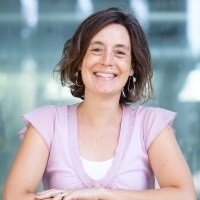 I obtained a PhD in Physics from Universitat de Barcelona. I did my postdoctoral work at Northwestern University, where I was the recipient of a Fulbright Scholarship and later I became a Research Assistant Professor at the Northwestern University Clinical and Translational Science Institute with joint appointments in the Department of Chemical and Biological Engineering and the Northwestern Institute on Complex Systems. In 2009, I moved to Universitat Rovira i Virgili where I am now a Professor in the Department of Chemical Engineering and co-lead the SEES lab.
I obtained a PhD in Physics from Universitat de Barcelona. I did my postdoctoral work at Northwestern University, where I was the recipient of a Fulbright Scholarship and later I became a Research Assistant Professor at the Northwestern University Clinical and Translational Science Institute with joint appointments in the Department of Chemical and Biological Engineering and the Northwestern Institute on Complex Systems. In 2009, I moved to Universitat Rovira i Virgili where I am now a Professor in the Department of Chemical Engineering and co-lead the SEES lab.
In 2013 and 2021, I received an ICREA Acadèmia Award for her excellence in research. Since 2021 I am a Fellow of the Network Science Society. Since July 2022, I am the president of the Catalan Complex Systems Society.
Personal page
Minah Seo, PhD, Korea Institute of Science and Technology (KIST), South Korea
orcid.org/0000-0003-1290-9716
Research areas: optical properties of materials, metamaterials, terahertz spectroscopy
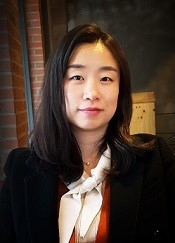 Dr Minah Seo is a senior research scientist at the Korea Institute of Science and Technology (KIST, South Korea). She received her Ph.D degree in Physics from Seoul National University including a period as a visiting scholar at Delft University. Her major is Physics with a specific interest in optics and spectroscopy of various materials in the ultrabroadband wavelength regime (visible to Terahertz). Prior to joining the KIST, she was a director’s postdoctoral fellow at Los Alamos National Laboratory in USA (2010~ 2013) working on ultrafast optical microscopy on semiconductor nano materials. After she joined the Sensor System Research Center at KIST, learning that current optical tools are rather limited in real immediate applications especially for small molecules, she has started to develop a hybrid type of terahertz optical sensing technique using nano scale metamaterials for highly sensitive and selective molecule detection. Dr Seo has authored over 70 publications and patents, including papers in Nature Photonics, Nano Letters, and Advanced Materials. She was awarded as a Young Fellow by the Korea Institute of Science and Technology in 2017.
Dr Minah Seo is a senior research scientist at the Korea Institute of Science and Technology (KIST, South Korea). She received her Ph.D degree in Physics from Seoul National University including a period as a visiting scholar at Delft University. Her major is Physics with a specific interest in optics and spectroscopy of various materials in the ultrabroadband wavelength regime (visible to Terahertz). Prior to joining the KIST, she was a director’s postdoctoral fellow at Los Alamos National Laboratory in USA (2010~ 2013) working on ultrafast optical microscopy on semiconductor nano materials. After she joined the Sensor System Research Center at KIST, learning that current optical tools are rather limited in real immediate applications especially for small molecules, she has started to develop a hybrid type of terahertz optical sensing technique using nano scale metamaterials for highly sensitive and selective molecule detection. Dr Seo has authored over 70 publications and patents, including papers in Nature Photonics, Nano Letters, and Advanced Materials. She was awarded as a Young Fellow by the Korea Institute of Science and Technology in 2017.
Personal page
Liling Sun, PhD, Institute of Physics, (CAS), China
orcid.org/0000-0002-6653-7826
Research areas: High-Tc superconductors, pressure-tuned quantum phase transitions in correlated electron systems
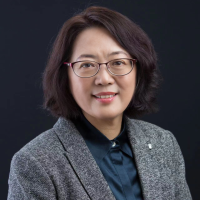 Liling Sun is a Professor of Physics at institute of Physics, Chinese Academy of Sciences (CAS) and a Fellow of the American Physical Society. She obtained her PhD from Institute of Metal Research, CAS, in 1994 and then worked as a research fellow at Institute of Inorganic Materials, Japan and Cornell University, USA. In 2005, she joined the National Lab for Superconductivity at institute of Physics, CAS as a full professor. Her research focuses on the transport and magnetic properties, crystal structure and quantum phase transition in strongly correlated electron systems, especially the studies of unconventional superconducting materials and physics under pressure condition.
Liling Sun is a Professor of Physics at institute of Physics, Chinese Academy of Sciences (CAS) and a Fellow of the American Physical Society. She obtained her PhD from Institute of Metal Research, CAS, in 1994 and then worked as a research fellow at Institute of Inorganic Materials, Japan and Cornell University, USA. In 2005, she joined the National Lab for Superconductivity at institute of Physics, CAS as a full professor. Her research focuses on the transport and magnetic properties, crystal structure and quantum phase transition in strongly correlated electron systems, especially the studies of unconventional superconducting materials and physics under pressure condition.
Personal page
Uğur Teğin, Phd, Koç University, Turkey
orcid.org/0000-0002-4690-588X
Research areas: Photonics, Nonlinear Optics, Optical Computing and Machine Learning, Fiber Optics and Lasers, Ultrafast Optics and Imaging
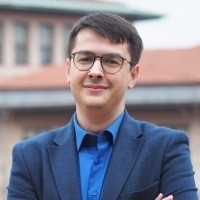 Dr. Uğur Teğin received his BSc in Physics (2015), MSc in Materials Science and Nanotechnology (2018) degrees from Bilkent University, Turkey, and his Ph.D. degree in Photonics (2021) from the École Polytechnique Fédérale de Lausanne, Switzerland. He then pursued his postdoctoral studies in Medical and Electrical Engineering at the California Institute of Technology, USA. He joined Electrical and Electronics Engineering at Koç University, Turkey as an assistant professor in 2023. His research interests include nonlinear optics, optical computing and machine learning, fiber optics and lasers, ultrafast optics and imaging. He has authored or co-authored 15 journal publications and 2 patents in these areas.
Dr. Uğur Teğin received his BSc in Physics (2015), MSc in Materials Science and Nanotechnology (2018) degrees from Bilkent University, Turkey, and his Ph.D. degree in Photonics (2021) from the École Polytechnique Fédérale de Lausanne, Switzerland. He then pursued his postdoctoral studies in Medical and Electrical Engineering at the California Institute of Technology, USA. He joined Electrical and Electronics Engineering at Koç University, Turkey as an assistant professor in 2023. His research interests include nonlinear optics, optical computing and machine learning, fiber optics and lasers, ultrafast optics and imaging. He has authored or co-authored 15 journal publications and 2 patents in these areas.
Personal webpage
Nikodem Tomczak, Phd, Institute of Materials Research and Engineering (IMRE), A*STAR, Singapore
Research areas: physics at surfaces and interfaces, scanning probe microscopy, nanomechanics, polymer physics, materials characterization methods
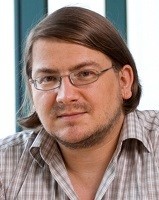 Nikodem Tomczak completed his PhD degree in chemistry at the University of Twente, the Netherlands. His doctoral research topic was on the application of single molecule fluorescence methods to studies of polymer structure and dynamics. He is currently a Senior Scientist and Leader of Advanced Nanometrology Research Group as well as Deputy Head of the Advanced Characterization and Instrumentation Department at the Institute of Materials Research and Engineering (IMRE), A*STAR, and a Research Affiliate at the NUS Business School Centre on AI Technology for Humankind. His research interests include physics at surfaces and interfaces, scanning probe microscopy, nanomechanics, polymer physics and materials characterization methods.
Nikodem Tomczak completed his PhD degree in chemistry at the University of Twente, the Netherlands. His doctoral research topic was on the application of single molecule fluorescence methods to studies of polymer structure and dynamics. He is currently a Senior Scientist and Leader of Advanced Nanometrology Research Group as well as Deputy Head of the Advanced Characterization and Instrumentation Department at the Institute of Materials Research and Engineering (IMRE), A*STAR, and a Research Affiliate at the NUS Business School Centre on AI Technology for Humankind. His research interests include physics at surfaces and interfaces, scanning probe microscopy, nanomechanics, polymer physics and materials characterization methods.
Personal page
Guy Van der Sande, Phd, Vrije Universiteit Brussel, Belgium
orcid.org/0000-0002-8600-3258
Research areas: photonics, nonlinear optics, semiconductor lasers, complex systems, nonlinear dynamics, neuromorphic computing, Ising machines
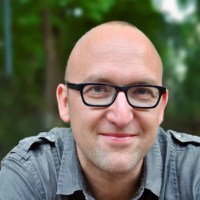 Guy Van der Sande is an Associate Professor in the Applied Physics Research Group of the Vrije Universiteit Brussel (VUB) in Belgium. He has held postdoctoral positions at VUB, and the Université Libre de Bruxelles, where he did research on nonlinear dynamics of vertical-cavity surface-emitting lasers, metamaterials and dynamics of spatially extended nonlinear optical systems. He was a visiting scientist at the Institute for Cross-Disciplinary Physics and Complex Systems (IFISC) at the Universitat de les Illes Balears, in Spain, where he worked on nonlinear dynamics of semiconductor lasers and large networks of delay-coupled nonlinear oscillators. He holds a PhD in Applied Sciences awarded by the department of Applied Physics and Photonics of the VUB. Guy provides Physics and Photonics education to bachelor and master students in Sciences and Engineering. His current research interests include the modeling and nonlinear dynamics of semiconductor lasers, neuromorphic and photonic information processing and photonic Ising machines.
Guy Van der Sande is an Associate Professor in the Applied Physics Research Group of the Vrije Universiteit Brussel (VUB) in Belgium. He has held postdoctoral positions at VUB, and the Université Libre de Bruxelles, where he did research on nonlinear dynamics of vertical-cavity surface-emitting lasers, metamaterials and dynamics of spatially extended nonlinear optical systems. He was a visiting scientist at the Institute for Cross-Disciplinary Physics and Complex Systems (IFISC) at the Universitat de les Illes Balears, in Spain, where he worked on nonlinear dynamics of semiconductor lasers and large networks of delay-coupled nonlinear oscillators. He holds a PhD in Applied Sciences awarded by the department of Applied Physics and Photonics of the VUB. Guy provides Physics and Photonics education to bachelor and master students in Sciences and Engineering. His current research interests include the modeling and nonlinear dynamics of semiconductor lasers, neuromorphic and photonic information processing and photonic Ising machines.
Personal page
Andrea Ventura, Phd, University of Salento, Italy
orcid.org/0000-0002-8600-3258
Research areas: Beyond Standard Model searches, R-parity conserving Supersymmetry, High Level Triggers, Muon reconstruction algorithms, Trigger software validation
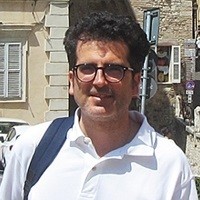 Andrea Ventura is an Associate Professor of Experimental Physics at the Department of Mathematics and Physics "E. De Giorgi" of the University of Salento (Lecce, Italy). He has obtained his PhD in Physics in 2003 producing high precision measurements on K meson decay rates for the KLOE experiment at LNF (Frascati). He has worked at CERN as an INFN postdoctoral fellow for the ATLAS collaboration before the start of the first run of the LHC (Large Hadron Collider), continuing in ATLAS until now with responsibilities and coordination roles, such as, central trigger validation and muon HLT (High Level Trigger) signature group coordination. His research interests include: searches of rare BSM (Beyond Standard Model) scenarios, development of offline and online muon reconstruction algorithms, implementation of trigger tools, HLT performance and validation studies for future challenges in High Energy Physics (HL-LHC and FCC).
Andrea Ventura is an Associate Professor of Experimental Physics at the Department of Mathematics and Physics "E. De Giorgi" of the University of Salento (Lecce, Italy). He has obtained his PhD in Physics in 2003 producing high precision measurements on K meson decay rates for the KLOE experiment at LNF (Frascati). He has worked at CERN as an INFN postdoctoral fellow for the ATLAS collaboration before the start of the first run of the LHC (Large Hadron Collider), continuing in ATLAS until now with responsibilities and coordination roles, such as, central trigger validation and muon HLT (High Level Trigger) signature group coordination. His research interests include: searches of rare BSM (Beyond Standard Model) scenarios, development of offline and online muon reconstruction algorithms, implementation of trigger tools, HLT performance and validation studies for future challenges in High Energy Physics (HL-LHC and FCC).
He has coordinated the INFN Accelerator Physics group in Lecce from 2015 to 2022, also promoting various outreach projects. Since 2014 he has been appointed by the Rector as Delegate for Performance and Statistics of the University of Salento.
Personal page
Xiangrong Wang, Phd, Hong Kong University of Science and Technology, Hong Kong
orcid.org/0000-0002-8600-3258
Research areas: topological objects and topological states, magnetization dynamics and spintronics, quantum phase transitions of two-dimensional systems
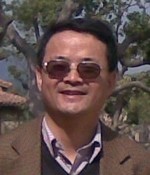 Xiangrong Wang obtained his BSc degree (1984) from Wuhan University and PhD degree (1990) from the University of Rochester. After two-year post-doc. experience in University of Minnesota, he joined the Physics Department of the Hong Kong University of Science and Technology as a faculty member in 1992. He is currently a professor there. He was awarded a Qian Ren Professor in 2010, and is guest professors of several universities and research institutions in the Mainland of China. Professor Wang is working in the field of theoretical condensed matter physics and statistical physics. His current research interests include static and dynamical properties of topological objects and topological states, magnetization dynamics, quantum phase transitions of two-dimensional systems. He published more than 150 papers.
Xiangrong Wang obtained his BSc degree (1984) from Wuhan University and PhD degree (1990) from the University of Rochester. After two-year post-doc. experience in University of Minnesota, he joined the Physics Department of the Hong Kong University of Science and Technology as a faculty member in 1992. He is currently a professor there. He was awarded a Qian Ren Professor in 2010, and is guest professors of several universities and research institutions in the Mainland of China. Professor Wang is working in the field of theoretical condensed matter physics and statistical physics. His current research interests include static and dynamical properties of topological objects and topological states, magnetization dynamics, quantum phase transitions of two-dimensional systems. He published more than 150 papers.
Personal page
Fan Yang, Phd, School of Physics, Beijing, China
orcid.org/ 0000-0002-1378-9237
Research areas: theory of strongly-corrleated electronic systems and superconductivity
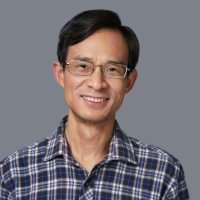 Fan Yang is a Professor of Physics in Beijing Institute of Technology. He obtained Ph.D of Philosophy from Peking University in 2002. Then after two years' postdoctoral career in the Institute of Advanced Study in Tsinghua University, he joined the physics department of Beijing Insititute of Technology in 2004. He was promoted as full professor in 2013. Fan Yang's research field is theory of strongly correlated electronic systems and superconductivity. His research focus is different types of unconventional superconductivity and related properties driven by electron-electron interactions. He has made contributions in the fields of the cuprates, the iron-based superconductors, the quantum spin liquid and its doping, the twisted bilayer graphene, the electronic states in the quasicrystal and the nickelate superconductors. Personal page
Fan Yang is a Professor of Physics in Beijing Institute of Technology. He obtained Ph.D of Philosophy from Peking University in 2002. Then after two years' postdoctoral career in the Institute of Advanced Study in Tsinghua University, he joined the physics department of Beijing Insititute of Technology in 2004. He was promoted as full professor in 2013. Fan Yang's research field is theory of strongly correlated electronic systems and superconductivity. His research focus is different types of unconventional superconductivity and related properties driven by electron-electron interactions. He has made contributions in the fields of the cuprates, the iron-based superconductors, the quantum spin liquid and its doping, the twisted bilayer graphene, the electronic states in the quasicrystal and the nickelate superconductors. Personal page
Ming Yi, Phd, Rice University, United States
Research areas: high-temperature superconductivity, quantum materials, experimental condensed matter physics
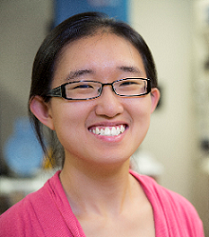 Dr Ming Yi is an experimental condensed matter physicist at Rice University broadly interested in understanding the fundamental mechanisms of emergent phenomena in quantum materials. She has in particular worked extensively in the area of high temperature superconductivity, whereby using experimental probes such as angle-resolved photoemission and x-ray scattering techniques has studied the behaviors of exotic electronic orders in these fascinating materials. She obtained her B.S. degree from MIT, and PhD degree from Stanford University, both in physics. After a postdoctoral position at UC Berkeley she started as an assistant professor position at Rice University in 2019. Dr. Yi is a recipient of the L’Oréal USA For Women In Science Fellowship in 2015, the Outstanding Dissertation Award of the International Organization of Chinese Physicists and Astronomers in 2016, and the William E. and Diane M. Spicer Young Investigator Award in 2018.
Dr Ming Yi is an experimental condensed matter physicist at Rice University broadly interested in understanding the fundamental mechanisms of emergent phenomena in quantum materials. She has in particular worked extensively in the area of high temperature superconductivity, whereby using experimental probes such as angle-resolved photoemission and x-ray scattering techniques has studied the behaviors of exotic electronic orders in these fascinating materials. She obtained her B.S. degree from MIT, and PhD degree from Stanford University, both in physics. After a postdoctoral position at UC Berkeley she started as an assistant professor position at Rice University in 2019. Dr. Yi is a recipient of the L’Oréal USA For Women In Science Fellowship in 2015, the Outstanding Dissertation Award of the International Organization of Chinese Physicists and Astronomers in 2016, and the William E. and Diane M. Spicer Young Investigator Award in 2018.
Personal page
Luqi Yuan, Phd, Shanghai Jiao Tong University, China
orcid.org/0000-0001-9481-0247
Research areas: optics and photonics, topological photonics, synthetic dimensions in photonics, quantum optics, hybrid quantum systems, light-matter interactions
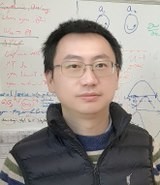 Dr. Luqi Yuan is currently a faculty in School of Physics and Astronomy at Shanghai Jiao Tong University. He received his PhD degree in Physics from Texas A&M University in 2014, and was a postdoctoral scholar from 2014 to 2018 at Stanford University. His research interests span broad fields among quantum optics, photonics, AMO physics, and nonlinear optics, including nanophotonics, topological photonics, synthetic dimensions in photonics, hybrid quantum systems, and light-matter interactions. Dr. Yuan has authored over 70 peer-reviewed papers, including those in Science, Nature Communications, Physical Review Letters, and Light: Science and Applications.
Dr. Luqi Yuan is currently a faculty in School of Physics and Astronomy at Shanghai Jiao Tong University. He received his PhD degree in Physics from Texas A&M University in 2014, and was a postdoctoral scholar from 2014 to 2018 at Stanford University. His research interests span broad fields among quantum optics, photonics, AMO physics, and nonlinear optics, including nanophotonics, topological photonics, synthetic dimensions in photonics, hybrid quantum systems, and light-matter interactions. Dr. Yuan has authored over 70 peer-reviewed papers, including those in Science, Nature Communications, Physical Review Letters, and Light: Science and Applications.
Personal page
Xiao-Xiao Zhang, PhD, University of Florida, United States
orcid.org/0000-0002-5447-3394
Research areas: Two-Dimensional Material, Optical Spectroscopy, Quantum Materials, Experimental Condensed Matter
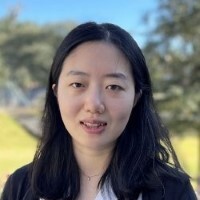 Xiao-Xiao Zhang is currently an Assistant Professor of Physics at the University of Florida. Her research focuses on optical spectroscopy and optoelectronic studies of novel 2D materials, which include ultrafast time-resolved studies and magneto-optics. She is interested in many-body interactions and light-driven transitions. She received her BS from Tsinghua University in 2012 and her Physics PhD from Columbia University in 2016. She did her postdoctoral studies at Stanford and later on at Cornell as a Kavli Postdoctoral Fellow. In 2019, she joined the faculty at the University of Florida. She is also a recipient of the NSF CAREER Award and the DOE Early Career Award.
Xiao-Xiao Zhang is currently an Assistant Professor of Physics at the University of Florida. Her research focuses on optical spectroscopy and optoelectronic studies of novel 2D materials, which include ultrafast time-resolved studies and magneto-optics. She is interested in many-body interactions and light-driven transitions. She received her BS from Tsinghua University in 2012 and her Physics PhD from Columbia University in 2016. She did her postdoctoral studies at Stanford and later on at Cornell as a Kavli Postdoctoral Fellow. In 2019, she joined the faculty at the University of Florida. She is also a recipient of the NSF CAREER Award and the DOE Early Career Award.
Personal webpage.
We will be expanding our editorial board as the journal grows.
Quntao Zhuang, Phd, University of Southern California, United States
orcid.org0000-0002-9554-3846
Research areas: Quantum sensing and communication, Quantum machine learning, Quantum information theory
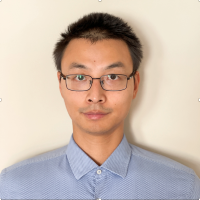 Quntao Zhuang is an assistant professor of Electrical and Computer Engineering and Physics and Astronomy at USC. He received his B.A. in physics from Peking University in 2013 and Ph.D. in physics in 2018 from Massachusetts Institute of Technology. Before coming to USC in 2022, he was an Assistant Professor in Electrical and Computer Engineering and Optical Sciences at University of Arizona. Dr. Zhuang received the NSF CAREER award in 2022 and DARPA Young Faculty Award in 2020, which is selected as DARPA Director’s award in 2022.
Quntao Zhuang is an assistant professor of Electrical and Computer Engineering and Physics and Astronomy at USC. He received his B.A. in physics from Peking University in 2013 and Ph.D. in physics in 2018 from Massachusetts Institute of Technology. Before coming to USC in 2022, he was an Assistant Professor in Electrical and Computer Engineering and Optical Sciences at University of Arizona. Dr. Zhuang received the NSF CAREER award in 2022 and DARPA Young Faculty Award in 2020, which is selected as DARPA Director’s award in 2022.
Personal page
